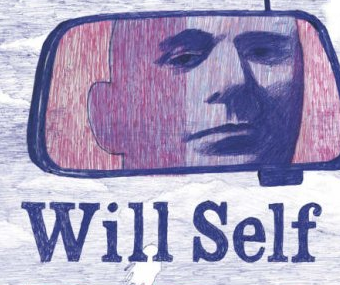Will Self
I've been invited as a plenary speaker to the forthcoming conference "Will Self and the Art of the Contemporary," to be held at the University of Roehampton on Saturday 1st December 2012. See here for the call for papers.
After an invigorating MA class on Will Self's The Book of Dave (Viking Press, 2006) as part of Lincoln's optional module on London Now (part of the department's ground-breaking MA in Twenty-First Century Literature), I couldn't resist spending some more time interrogating Self's pastiche of the genres of London satire and post-apocalyptic projection. Indebted to Russell Hoban's Riddley Walker (Jonathan Cape, 1980), The Book of Dave invokes a generic tradition stretching back to William Morris’ post-revolutionary meadows and villages in News from Nowhere (1890), Richard Jefferies’ gleeful devastation of the city in After London; or, Wild England (1885), and the swamps and marshes of J. G. Ballard’s ecocatastrophe The Drowned World (1962).
It is my argument that Self’s post-apocalyptic “Arcadian revenge,” however, asserts a (critical) utopian chronotope in the pastoral backwater of the island of Ham – “an island of the blessed” replete with simple agricultural labour, the shepherding of an innocent, sensual breed of genetically-engineered human-animal hybrids known as “motos,” and religious worship. As the futuristic, postdiluvian location of Hampstead Heath, the island of Ham conglutinates this little agrarian commonwealth with present-day Dave’s own nostalgic analepses of prelapsarian childhood simplicity; as well as his step-son Carl’s memories of the “affectionate enclosure” of childhood, before he was “expelled from Arcadia.”
This paper was presented at the Birkbeck Symposium on Contemporary British Fiction in May 2012, organised by Tony Venezia and Bianca Leggett.
Here's the PowerPoint presentation that accompanied the talk:







 Dr Caroline Edwards is Senior Lecturer in Modern & Contemporary Literature at Birkbeck, University of London. Her research and teaching specialisms are in 21st century literature and critical theory, science fiction and post-apocalyptic narratives, Marxist aesthetics, and utopianism.
Dr Caroline Edwards is Senior Lecturer in Modern & Contemporary Literature at Birkbeck, University of London. Her research and teaching specialisms are in 21st century literature and critical theory, science fiction and post-apocalyptic narratives, Marxist aesthetics, and utopianism.
Follow / Contact